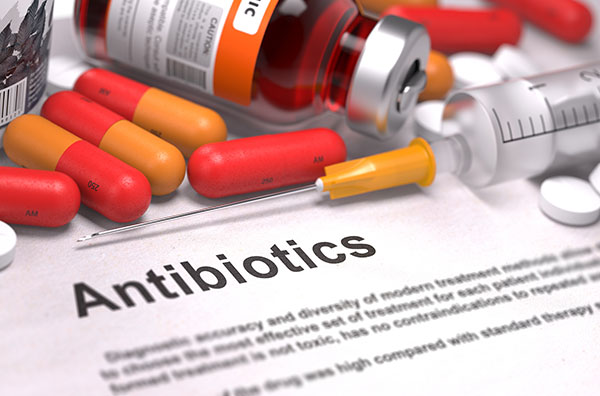
As one of the body's detoxification organs, your kidneys play a major role in processing toxic molecules and chemicals that enter your body, including medications. As such, they are just as susceptible as the liver – the body's main detoxification organ – to damage (nephrotoxicity) caused by drug toxicity.
The detoxification process is a series of events that starts in the liver. The liver first breaks down substances present in your blood into their chemical components. While the beneficial ones are returned to circulation to be distributed throughout your body, the harmful molecules/toxins are further broken down by the liver, making them ready for the next stage of processing which happens in the kidneys. (Related: Help your liver detoxify: 4 Tips to remove toxins from the body.)
The kidneys work like a sieve, removing waste, other unwanted substances and excess fluid from your blood so they can be flushed out of your body via your urine. Because your kidneys need water to clear out all the harmful chemicals from your bloodstream, sufficient water intake is vital to the success of your body's detoxification process. Your kidneys normally filter your entire blood supply between 20 and 25 times each day.
How medications can harm your kidneys
Although not discussed as often as it should be, many commonly used medications do in fact harm the kidneys even when taken in small doses or only occasionally. In fact, research suggests that about 20 percent of community- and hospital-acquired cases of acute kidney failure are caused by medications.
There are many ways harmful prescriptions can cause kidney injury and impair kidney function. According to research, drug-induced nephrotoxicity occurs through the following mechanisms:
- Altered intraglomerular hemodynamics - This occurs when medications that affect blood pressure interfere with the activity of the glomerulus – the kidney's filtering unit – and decrease glomerular filtration rate. Under normal conditions and sustained intraglomerular pressure, the glomerulus filters about 120 milliliters (mL) of blood plasma per minute.
- Tubular cell toxicity - This occurs when medications impair mitochondrial function and increase oxidative stress in renal tubular cells. These kidney cells, specifically the proximal tubule cells, are highly exposed to toxic chemicals because they are directly involved in concentrating and reabsorbing glomerular filtrate.
- Inflammation (glomerulonephritis) - Severe or prolonged inflammation, which can be triggered by oxidative stress or an allergic response to medications, can injure the glomerulus and renal tubular cells, leading to fibrosis and kidney scarring. The scarring process is said to cause loss of nephrons -- kidney structures composed of the glomerulus and renal tubules -- hyperfiltration and progressive decline of kidney function.
- Crystal nephropathy - Some medications produce crystals that are insoluble in urine. When these crystals precipitate, they can obstruct the flow of urine and cause an interstitial reaction that leads to fibrosis. Crystal nephropathy can impair kidney function or cause kidney failure.
- Rhabdomyolysis - This syndrome is characterized by the rupturing (lysis) of myocytes, or muscle cells. Certain medications, most notably statins, and commonly abused drugs, have been reported to predispose myocytes to injury, resulting in lysis of myocytes and the release of cellular contents like myoglobin. Myoglobin breaks down into chemicals that can harm the kidneys.
- Thrombotic microangiopathy (TMA) - A life-threatening complication commonly associated with chemotherapeutic and antiplatelet agents, TMA can damage organs like the kidneys due to the formation of microscopic blood clots in small blood vessels.
7 Categories of prescription medications that can harm your kidneys
Despite their intended use, modern pharmaceuticals have the potential to cause more health problems, especially with prolonged or incorrect use. In fact, many commonly prescribed medications are notorious for causing side effects that reduce quality of life for their users.
While prescription drugs may help resolve certain issues, this does not change the fact that they are still made of synthetic chemicals that can cause toxicity to healthy cells and organs. Besides the liver, your kidneys are among the most susceptible to the toxic effects of certain medications.
Here are seven categories of medications that are known to harm the kidneys: (h/t to TheEpochTimes.com)
Anti-inflammatory and analgesic medications
Non-steroidal anti-inflammatory drugs (NSAIDs) like ibuprofen and naproxen are said to help reduce pain, fever and inflammation by blocking the production of prostaglandins. While the analgesic acetaminophen is thought to work in a similar way, it does not treat inflammation.
According to studies, NSAIDs cause kidney injury via altered intraglomerular hemodynamics and glomerulonephritis. Acetaminophen and aspirin are linked to chronic interstitial nephritis, which impairs your kidneys' ability to filter blood and make urine.
Blood pressure and heart medications
Excessive use of diuretics, which help bring down blood pressure and get rid of extra fluid at the same time, can decrease blood flow to your kidneys, resulting in kidney damage. Meanwhile, angiotensin-converting enzyme inhibitors and angiotensin receptor blockers, which are used to manage hypertension, have been associated with altered intraglomerular hemodynamics.
The antiplatelet (anti-blood clot) medications, clopidogrel and ticlopidine, have been found to cause TMA, while statins, which are used to lower blood cholesterol levels, are reported to cause rhabdomyolysis. (Related: Statins are the most prescribed drug with over-hyped benefits and downplayed side effects.)
Antibiotics and antifungals
Excessive use of antibiotics is linked to the development of antibiotic-resistant strains of bacteria. Certain antibiotics are also known to cause kidney damage. For example, aminoglycosides, which are known as broad-spectrum antibiotics, are associated with tubular cell toxicity.
Meanwhile, beta-lactams, which include penicillin derivatives and cephalosporins, have been found to cause acute interstitial nephritis and glomerulonephritis. Quinolones, a type of antibiotics that directly kill bacterial cells, have been reported to cause acute interstitial nephritis and crystal nephropathy.
Amphotericin B, which is used to treat serious fungal infections, and pentamidine, an antifungal agent commonly used by HIV patients to prevent a serious type of pneumonia, are also linked to tubular cell toxicity.
Antiviral drugs
Many antiviral medications are known to cause mitochondrial injury in kidney epithelial cells. Acyclovir, which is used to treat chickenpox, shingles and herpes simplex infections, has been shown to cause acute interstitial nephritis and crystal nephropathy.
Foscarnet, an FDA-approved antiviral for the treatment of cytomegalovirus (CMV) infections, and ganciclovir, which is used to treat CMV infections of the eyes, have been found to cause crystal nephropathy and tubular cell toxicity.
Antiretroviral medications, which are used for the management of HIV/AIDS, are also linked to tubular cell toxicity, acute interstitial nephritis, crystal nephropathy and rhabdomyolysis.
Antidepressants and mood stabilizers
Antidepressants are among the most frequently prescribed medications in the United States. Unfortunately, they are also some of the most harmful prescription drugs to the body, particularly the kidneys. (Related: STUDY: These prescription medications can increase your risk of depression.)
Studies show that tricyclic antidepressants like amitriptyline and doxepin, and selective serotonin reuptake inhibitors (SSRIs) like fluoxetine can cause rhabdomyolysis. Meanwhile, lithium, a mood stabilizer used for the treatment of depression associated with bipolar disorder, has been found to cause chronic interstitial nephritis, glomerulonephritis and rhabdomyolysis.
Chemotherapeutic agents
Drugs used in chemotherapy can harm more than just your kidneys because they do not selectively target cancer cells. These toxic chemicals also kill healthy fast-growing cells, such as those in your skin and digestive tract.
Chemotherapeutic drugs like carmustine, which is used to treat brain tumors, non-Hodgkin's lymphoma and Hodgkin's lymphoma, and cisplatin, which contains platinum, have been linked to chronic interstitial nephritis and tubular cell toxicity.
Interferon-alfa, an immunomodulator, is said to cause glomerulonephritis. Methotrexate, an antimetabolite and immunosuppressant, can cause crystal nephropathy. Meanwhile, the antitumor drug mitomycin-C has been shown to cause thrombotic microangiopathy.
Contrast agents
Contrast agents are dyes used by radiologists to enhance the radiodensity of tissues. These chemicals work by "altering the way that electromagnetic radiation or ultrasound waves pass through the body."
Contrast agents are known for their toxicity, which could lead to renal insufficiency (poor kidney function) or acute kidney failure. The use of contrast agents in clinical settings has been linked to tubular cell toxicity.
The kidneys are important organs that help keep your body healthy by facilitating the removal of toxic substances from your blood. But because of this crucial role, your kidneys are susceptible to drug-induced toxicity.
To keep your kidneys and other detoxification organs healthy, opt for natural medicines instead of synthetic drugs and formulations. Learn more about natural alternatives to prescription medications at AlternativeMedicine.news.
Watch the following video to learn why early detection matters when guarding kidney health.
This video is from the Finding Genius Podcast channel on Brighteon.com.
More related stories:
Improve kidney and urinary tract health with these key herbs.
Discover the ancient wisdom and modern science behind kidney health.
Cleaning the cleaners: Herbs that help maintain healthy kidneys.
NAC found to protect kidneys against VENOM damage (no wonder FDA wants to ban it).
Sources include:
Please contact us for more information.






















